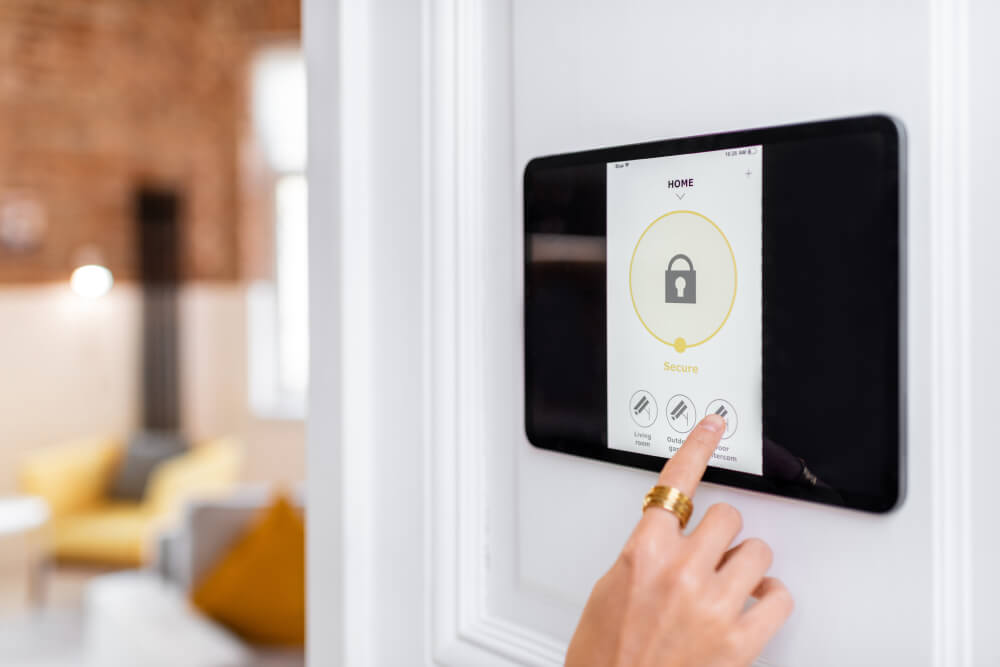Spring Maintenance Tips
Inspect and Clean Gutters
- Clear Debris: Remove leaves, twigs, and other debris from gutters and downspouts to ensure proper drainage.
- Check for Damage: Inspect gutters for signs of damage or leaks and repair as needed.
Examine the Roof
- Inspect Shingles: Check for loose, damaged, or missing shingles and replace them to prevent leaks.
- Clean Moss and Algae: Remove moss and algae growth to prevent roof damage and maintain its appearance.
Service HVAC Systems
- Schedule a Tune-Up: Have a professional inspect and service your heating and cooling systems to ensure they are operating efficiently.
- Replace Filters: Change HVAC filters to improve air quality and system performance.
Prepare the Garden
- Clean Up: Remove dead plants, leaves, and debris from garden beds.
- Prune and Trim: Prune trees and shrubs to promote healthy growth and enhance curb appeal.
- Plan for Planting: Prepare soil and plan your garden layout for spring planting.
Inspect Windows and Doors
- Check Seals: Inspect weatherstripping and seals around windows and doors for drafts and replace if necessary.
- Clean and Repair: Clean windows and screens and repair any damage.
Join HICP Homeowner’s Alliance
Connect with experts, get special discounts and enjoy member benefits
Summer Maintenance Tips
Maintain Outdoor Spaces
- Inspect Decks and Patios: Check for loose boards, cracks, and signs of wear. Clean and seal surfaces as needed.
- Lawn Care: Mow the lawn regularly, water as needed, and apply fertilizer to promote healthy growth.
Check Plumbing Systems
- Inspect Pipes: Check for leaks, corrosion, and water pressure issues. Address any problems promptly.
- Clean Drains: Clear slow drains and consider using a natural drain cleaner to prevent clogs.
Examine Exterior Paint and Siding
- Inspect for Damage: Look for peeling paint, cracks, and signs of wear on your home’s exterior. Touch up or repaint as needed.
- Clean Siding: Wash siding to remove dirt, mold, and mildew.
Service Appliances
- Refrigerator Maintenance: Clean refrigerator coils to improve efficiency and prevent breakdowns.
- Check Smoke Detectors: Test smoke detectors and replace batteries if necessary.
Ensure Proper Ventilation
- Clean Vents: Clean kitchen and bathroom vents to improve air quality and prevent mold growth.
- Check Attic Ventilation: Ensure your attic is properly ventilated to prevent heat buildup and reduce cooling costs.
Fall Maintenance Tips
Prepare for Colder Weather
- Inspect Heating Systems: Have a professional inspect and service your furnace or boiler to ensure it’s ready for winter.
- Check Insulation: Inspect attic and wall insulation and add more if needed to improve energy efficiency.
Clean Gutters and Downspouts
- Remove Leaves: Clear gutters and downspouts of fallen leaves and debris to prevent clogs and ice dams.
- Ensure Proper Drainage: Make sure downspouts direct water away from the foundation to prevent water damage.
Inspect Roof and Chimney
- Roof Inspection: Check for damaged shingles, flashing, and other potential issues. Make repairs before winter weather sets in.
- Chimney Cleaning: Have your chimney inspected and cleaned to ensure it’s safe for use.
Seal Gaps and Cracks
- Inspect Exterior: Check for gaps and cracks around windows, doors, and the foundation. Seal them to prevent drafts and pests from entering.
- Caulk and Weatherstrip: Apply caulk and weatherstripping to improve energy efficiency and comfort.
Winterize Outdoor Faucets and Sprinklers
- Shut Off Valves: Turn off and drain outdoor faucets and sprinkler systems to prevent freezing and burst pipes.
- Insulate Exposed Pipes: Insulate any exposed pipes to protect them from freezing temperatures.
Winter Maintenance Tips
Monitor Heating Systems
- Regular Checkups: Keep an eye on your heating system’s performance and schedule maintenance if needed.
- Replace Filters: Change HVAC filters regularly to maintain good air quality and system efficiency.
Inspect and Maintain Gutters
- Prevent Ice Dams: Ensure gutters and downspouts are clear of debris to prevent ice dams from forming.
- Check for Leaks: Inspect for any signs of leaks or water damage around gutters and address them promptly.
Maintain Indoor Air Quality
- Humidifiers: Use humidifiers to maintain proper indoor humidity levels and prevent dry air.
- Ventilation: Ensure proper ventilation in kitchens and bathrooms to reduce moisture buildup and prevent mold growth.
Inspect and Test Safety Devices
- Smoke and CO Detectors: Test smoke and carbon monoxide detectors and replace batteries if necessary.
- Fire Extinguishers: Check the condition and expiration dates of fire extinguishers and replace them if needed.
Prepare for Winter Storms
- Stock Emergency Supplies: Keep a supply of essentials such as food, water, batteries, and blankets in case of power outages.
- Winterize Vehicles: Ensure your vehicles are winter-ready with proper tires, antifreeze, and emergency kits.
Year-Round Maintenance Tips
Regular Inspections
- Monthly Walkthroughs: Conduct monthly walkthroughs to identify and address any potential issues before they become major problems.
- Seasonal Checks: Perform seasonal checks on key systems and components to ensure everything is functioning properly.
Stay Organized
- Maintenance Log: Keep a maintenance log to track completed tasks, upcoming maintenance, and any issues that need attention.
- Professional Help: Know when to call in professionals for inspections, repairs, and maintenance to ensure the longevity and efficiency of your home.
By following a seasonal home maintenance schedule, you can keep your home in optimal condition, prevent costly repairs, and ensure a comfortable living environment year-round. Regular inspections and timely maintenance tasks tailored to each season will help you address specific needs and maintain the overall health of your home. Embrace these seasonal home maintenance tips to protect your investment and enhance the longevity and efficiency of your property.











